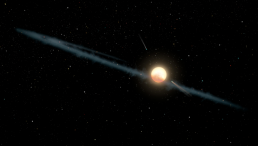Celine Dion has announced that she is postponing several dates on her Europe tour due to a recent diagnosis of a rare neurological disorder called stiff-person syndrome. In an emotional video posted to her Instagram account, Dion explained that the disorder affects "something like one in a million people" and causes spasms that make it difficult for her to walk and sing.
Stiff-person syndrome is a progressive disorder that affects the nervous system, specifically the brain and spinal cord. Dion did not specify how long the tour would be postponed or when she would be able to resume performing. Stiff-person syndrome (SPS) is a rare disorder that affects the nervous system. It is characterized by stiffness in the muscles of the trunk, arms, and legs, as well as increased sensitivity to noise, touch, and emotional distress.
This can cause muscle spasms and difficulty with movement. Over time, people with SPS may develop abnormal postures and may become unable to walk or move. They may also have difficulty with balance and coordination, which can lead to falls and injuries. The symptoms of SPS can be triggered by external stimuli, such as loud noises, making it difficult for people with the disorder to go out in public.
Disease Affecting One-in-a-Million
SPS affects twice as many women as men. It is often associated with other autoimmune diseases, such as type-1 diabetes and thyroiditis. The cause of SPS is not well understood, but it is thought to be related to an autoimmune response in the brain and spinal cord. SPS is frequently misdiagnosed as other conditions, such as Parkinson's disease, multiple sclerosis, and fibromyalgia, as reported by CNN.
A definitive diagnosis can be made through a blood test that measures the level of glutamic acid decarboxylase (GAD) antibodies. Most people with SPS have elevated levels of GAD antibodies. The presence and amount of these antibodies can be measured through a laboratory test called a titer. In people with SPS, the titer results may be up to 10 times higher than normal. Elevated GAD titers are also seen in people with diabetes, but in SPS, the levels are even higher or are present in the spinal fluid.
These high levels of antibodies can be used to help diagnose SPS. There is no cure for SPS, but some symptoms can be managed with medication. Anti-anxiety and muscle relaxant drugs, such as diazepam, can help reduce stiffness and improve muscle control. Other drugs, such as baclofen and gabapentin, can also be effective in reducing muscle spasms.

Celine Dion had a mega hit with the power ballad My Heart Will Go On. Canadian icon, Celine Dion suffers from a rare neurological disorder affecting one in a million people.
ALSO READ: Mysterious Neurological Disorder Baffles Doctors in Canada; What Is It?
Recovering from the SPS
A study funded by the National Institute of Neurological Disorders and Stroke (NINDS) showed that intravenous immunoglobulin (IVIg) treatment can improve stiffness, sensitivity to noise, touch, and stress, and can improve gait and balance in people with SPS. IVIg contains immunoglobulins, which are natural antibodies produced by the immune system, and sourced from healthy donors.
According to BBC, Celine Dion had to postpone several dates on her world tour due to the Covid-19 pandemic. She was also forced to reschedule dates after developing "severe and persistent muscle spasms" that delayed the return of her Las Vegas residency. As a result, several shows, including those in Birmingham, Glasgow, Manchester, and London, have been pushed back or canceled. Dion reassured her fans that she had "a great team of doctors" working with her to help her recover and that her "precious children" were providing support.
In her video message, Dion explained that she was working hard with her sports medicine therapist to regain her strength and ability to perform. She said that singing is all she knows and loves to do and that she misses her fans and being on stage. She also mentioned that her condition is preventing her from giving 100% to her performances. Dion ended the video by thanking her fans for their support and saying that she is focusing on her health and hopes to be on the road to recovery.
RELATED ARTICLE: Human Brain Organoids Grown in Rats to Study Neurological Diseases
Check out more news and information on Neuroscience in Science Times.














